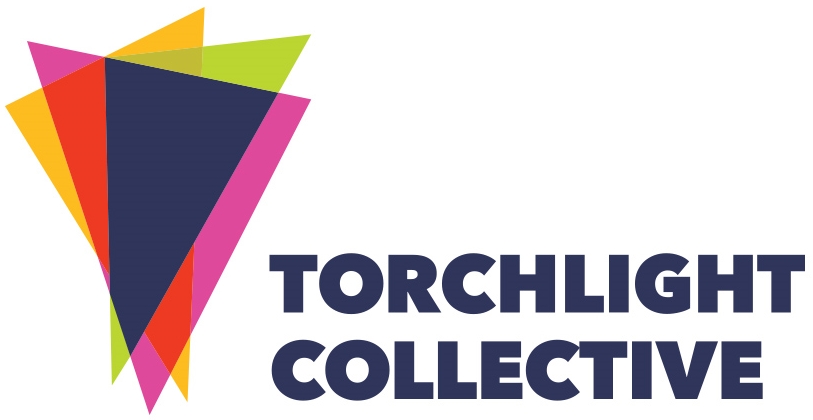By: Caitlin Chandler
If you’ve interacted with the Torchlight Collective, chances are you’ve met our very own Lindsay Menard-Freeman (or LMF as we call her in-house). Lindsay, who co-founded the Torchlight Collective in 2016, is known for her infectious laughter, natural warmth and signature curls. She’s often the public face of Torchlight, representing us at numerous meetings and public events, shepherding our big projects to completion, and always starting our team calls with, “how are you doing today as a human?” I connected with her virtually across the Atlantic - both of us clutching cups of coffee - to find out what inspired Torchlight’s inception and where she sees it all going.
CC: What led you to start the Torchlight Collective?
LMF: There were two forces that catalyzed the Collective - one of them was that there were a fairly solid group of us working as consultants, most of whom had previously worked for or with youth organizations in our past lives - and the second was that the growing consensus and attention given to youth issues did not yet match up with the technical know-how to support these movements globally. We had all worked with amazing youth movements and coalitions that just didn’t have the right resources or connections, and we knew that a lot of it was a matter of bringing all the actors and pieces together. There was a unique moment to think about how we could joint forces as consultants and be part of something bigger to have a collective impact.
CC: You previously worked as a youth advocate; was it hard to make the transition to adult ally? How did you navigate that transition?
LMF: There were some things that were funny about the transition. Many of us in the Collective, myself included, were in prominent leadership positions (for better or worse), and making very big decisions on behalf of coalitions and organizations, many of us when we were still under the age of 25. That’s a good thing, but it’s also a challenge to then transition to something that feels as meaningful but with more resources. I was really lucky that my first job after moving on from a youth organization was at a place where I had the mandate to still find ways and spaces to support youth movements. For the first time, I could also see how to address some of the struggles I had faced as a youth advocate, and I had the resources and organizational support to do so. Now at Torchlight, we’re in the unique position as consultants and technical experts to think about how to use our voices and roles in new ways.
CC: What are some lessons that you learned as a youth activist that you now apply to Torchlight’s approach?
LMF: I think looking back, some of the things I felt really confident in my understanding of - such as how and where power is shared, who makes decisions and why institutions do certain things - I now realize are more complicated. It’s hard to understand the full landscape when you’re still learning the landscape and the many players involved.
A lot of times our added value with some of the youth organizations we’re working with is to say, here’s the bigger picture and the broader agenda, and how you could think about fitting in. I really like opportunities to support youth movements and youth leaders and to be able to say to them, ‘definitely keep that spirit and attitude of being creative and the flame-thrower and disrupting systems - but here’s some information and ways to think that will complicate and nuance your approach and hopefully make it more strategic and successful.’ To me, this is where Torchlight can be supportive.
CC: Why do you think it’s also critical that donors and people in power continue listening to youth movements?
LMF: The organizations or leaders that say that they’re working in service of or believe in the power of young people - they need to put real, substantive and strategic plans behind those words. And money. You can’t just say ‘they’re the future’ but then not align your programming and agenda to support their work. There’s a symbiotic shift that should happen between NGOs and foundations, and it starts with planning better youth programs and supporting youth-led movements. And at the same time, the money they get to do that also determines how they function. Funding for youth movements has been an issue for years - you need money to get money. Smaller, scrappier organizations often don’t have a shot. This is where Torchlight can also come in and help address some of these power dynamics by supporting smaller organizations to have a seat at the table.
CC: Where do you see Torchlight going?
LMF: We’re now two years into existence. We’ve had amazing clients and diverse projects; we can now review what worked and what we learned from things that panned out differently from how we thought they would. Maybe we grow further, maybe we hone our focus, maybe we formalize some of our methodologies - but it makes sense to continue as long as we add value to this space. We’re in this great moment of reflection to really determine together where we want to go as a group, and I think that’s really exciting.

